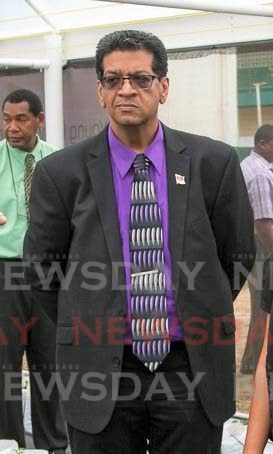Economic future lies in services sector

RUSHTON PARAY
AS TT looks toward its next phase of development, it is time to move past the rhetoric of diversification and into implementation. The evidence is clear: the future of our economy lies in the services sector. While energy and manufacturing have underpinned our economy for decades, they no longer offer the growth, resilience, or employment opportunities we need. A government serious about long-term prosperity must prioritise building a services-based economy.
The global shift toward services
Globally, the services sector now accounts for more than 65 per cent of GDP in most advanced and many developing economies. Countries that once depended heavily on commodities have shifted their economic models to services.
Singapore, for example, transformed itself from a small trading port into a global hub for finance, logistics, healthcare, and digital services.
Barbados, with far fewer resources than Trinidad, has successfully positioned itself as a destination for high-value tourism, international business services, and remote work.
Mauritius moved from a sugar-based economy to one centred on financial services, information and communication technology (ICT), and business process outsourcing (BPO). These countries share key traits with TT: small size, limited natural resources (or depleting ones), and a need to compete through skills, technology, and strategic positioning.
Why services are right for TT?
There are several reasons why TT is particularly well-suited to lead a regional transition into a services-based economy:
Skilled, English-speaking workforce
TT has a relatively high literacy rate, strong university enrolment, and a growing pool of ICT-skilled young people. As English is the global business language, this gives us a natural advantage in areas like offshore education, BPO, customer service centres, legal process outsourcing, and IT services.
Strategic geographic location
We are just four hours from Miami, with strong air and sea connectivity to both North and South America. This makes Trinidad ideal for nearshoring business operations – especially as American firms look to reduce dependency on Asia and shorten supply chains.
Digital infrastructure
Trinidad has one of the more robust telecom infrastructures in the Caribbean. With further investment from the Universal Service Fund, we can close digital access gaps and make every household capable of interacting with government and commercial services online.
Untapped creative potential
Our Carnival economy, music exports, culinary innovation, and fashion sector remain undervalued in economic policy. These are real exports. Streaming platforms, digital animation studios, and music licensing platforms offer viable growth paths that require low physical infrastructure but high digital and cultural capital.
Diaspora and Commonwealth networks
Our diaspora communities in Canada, the UK, and the US are well-positioned to support services exports – whether through remote medical consultations, offshore university campuses, or BPO contracts sourced through diaspora professionals. Commonwealth treaties also provide a regulatory framework for services trade and professional mobility.
Concrete opportunities for growth
TT should focus on five high-potential service subsectors:
Business process outsourcing
We can attract more call centres, HR outsourcing, and financial processing operations. Jamaica employs over 50,000 people in this sector alone – our numbers are negligible by comparison.
Financial and professional services
Trinidad already has a modest international financial centre. With reforms, we could position Port of Spain as a finance and legal services hub for Latin America and the Caribbean.
Health and medical services
Private healthcare is strong in Trinidad. With modest investment, we could become a centre for regional medical tourism, attracting patients from neighbouring islands for surgery, diagnostics, and recovery care.
Digital services
Animation, app development, cybersecurity, and content creation are growing across the region. Institutions like UTT and COSTAATT can be retooled to produce export-ready digital workers.
Tourism and culture-based services
Rather than chasing mass tourism, we should develop niche offerings: sports events, film production, eco-tourism, and culinary experiences – each supported by digital marketing and local SMEs.
Why government policy must shift?
Continuing to rely on energy is a strategic error. Production volumes are down, new exploration is sluggish, and global energy transition goals threaten future fossil fuel demand. The government must stop using energy revenue to mask structural weaknesses. Instead, we should channel those revenues into building service capabilities – starting with education reform, infrastructure upgrades, and export development support:
* Education must shift from rote learning to digital literacy, critical thinking, and service-oriented skills.
* Investment incentives must favour companies offering services exports, especially those that generate foreign exchange or employ young people.
* State agencies like exporTT, invesTT, and iGovTT must be restructured around service-sector development, not just goods and construction projects.
The case for service-sector diversification is no longer theoretical. Countries like Singapore, Mauritius, and Barbados have demonstrated that small states can thrive by investing in people, technology, and service delivery.
TT has the talent, the infrastructure, and the location. What it lacks is a government ready to make this transition a national priority.
When elected to office, the incoming administration must commit to a bold economic shift – one that values intellect over extraction, innovation over inertia, and opportunity over orthodoxy.
Rushton Paray is the MP for Mayaro

Comments
"Economic future lies in services sector"